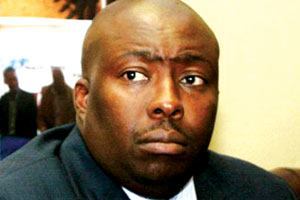
MUTARE — A South African resource development consultant, Paul Jourdan says Zimbabwe’s indigenisation law is a recipe for disaster and reduces the inflow of much needed foreign direct investment (FDI).
REPORT BY OUR CORRESPONDENT
According to the Indigenisation Act, any foreign-owned businesses with a net asset value of US$500 000 and above should all be in the hands of the locals in the next five years.
Zanu PF, which is driving the programme, said the programme is meant to empower the locals and redress colonial imbalances.
The two MDC formations however accuse Zanu PF of using the programme to curry favour with the electorate in the make-or-break harmonised polls expected this year.
But Jourdan, who is assisting government in the drafting of the new minerals policy document which should succeed the current Mineral and Mining Act, encouraged Zimbabwe to revisit the law.
He proposed that the threshold for locals should be 20% for new investors, renewable after probably 10 years.
It would gradually increase to 51%.
- Chamisa under fire over US$120K donation
- Mavhunga puts DeMbare into Chibuku quarterfinals
- Pension funds bet on Cabora Bassa oilfields
- Councils defy govt fire tender directive
Keep Reading
“I think this will make Zimbabwe attractive for FDI but if we maintain the status quo in the short-term, we will not be able to attract the foreign direct investment. We have to decide, we cannot say we want indigenisation and FDI with the current policy in place. I humbly tell you your indigenisation rules and what they are perceived is going to stop FDI,” he said. “So how do we finance your indigenisation because we need both, how do we configure it? What I recommend is to attract new FDI and target 21% for locals. You can’t be half pregnant.”
He said since there was a serious liquidity crunch in the economy, government should make a compromise in the engagement of foreign investors.
“There is no capital in Zimbabwe; it was destroyed during the zillion dollar crisis that also affected the capital base. So there is no capital. There is crisis of liquidity and we hear the minister of Finance saying this. This is not a political party thing we all know that. The Reserve Bank has no money. There is no lender of last resort and we need to get capital flowing,” Jourdan said.
He said the 51% model was not attractive to new investors but could only suit current mines, such as Zimplats and Mimosa who have been operating in the country for years.
He said the 10% share community share ownership trusts create poor and rich communities, adding that the natural resources should be equally distributed among all citizens of the country.
Some of the community trusts launched include Chegutu-Mhondoro-Ngezi Zvimba, Tongogara Community Share Ownership Trust at Unki Mine in Shurugwi, the Mashonaland Central Community Share Ownership Trusts and the Marange-Zimunya Community Share Ownership Trust.
Jourdan said the trusts concept was a recipe for disaster as the country risks creating an inequitable distribution of wealth.
“I refer to South Africa; all the resources belong to people of the country, not the land owner, not mining companies, community or province. The problem is that the rich communities will one day be overwhelmed by a sea of poverty. The poor communities will rise up and say let’s share the wealth equally,” he said.











